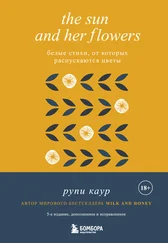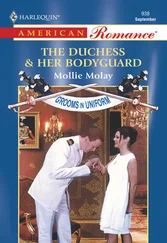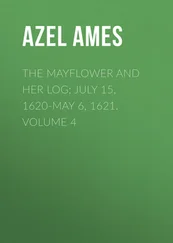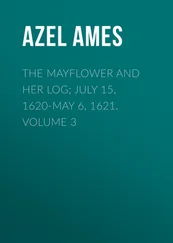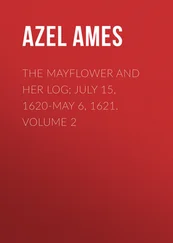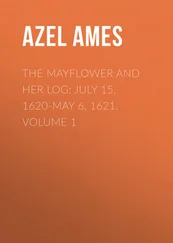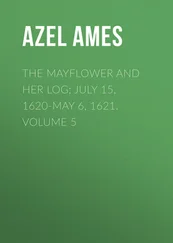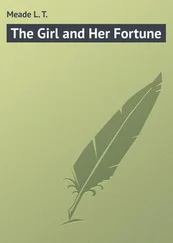We stayed in that night talking and comforting and sobbing and all the hopeless rest. I felt a mad urge to go out looking, as if he could be found in quiet streets running back from the Yarra. Next day we went to work, and kept our news secret. Dotty arrived home after me and cried out, To hell with staying in and moping. Let’s just go out to the Windsor for dinner.
For some reason it seemed exactly the right thing. We dressed, and made ourselves up and called a taxi.
As we walked up the stairs of the hotel we could hear the festive buzz from within the dining room. The Windsor had that pleasant young woman in black who met us at the doorway of the restaurant and told us there that sadly there was no table available until a quarter to nine. Indeed the tables seemed all taken, by military men and well-dressed women. Dotty obviously felt a primal rage at this unknowing girl, because I felt the same. Dotty told her in a voice thin as a skewer to fetch the head waiter. She fled and got him. He sailed up, a tall man, with his forced smile on his lips, and asked dubiously whether he could help us.
Dotty said in the same thinned-out, furious voice which had compelled the young woman, Our husbands have just been reported missing in action. All we want is a meal. Just get us a table. And not one in a broom cupboard somewhere. A decent table. Otherwise we’ll yell the roof in.
He looked at me for help, as the one with the less turbulent features.
We’re fed up, I confirmed. Why aren’t half these home front warriors missing in action, and not our husbands?
As I spoke I saw a change come over his face. No longer the bland bestower of tables, he nodded at me and a weariness of grief entered his own face. He too had been the receiver of frightful news. He had dead or lost children. He said he sympathised with us, and of course he would try to find us a table. Just give him a minute.
I thanked him. But I had changed. I was unabashed by Dotty’s act, and by my own. But it had taken a lot out of us. Dotty dealt with every suggestion of the elderly waiters with a high, clipped voice, whereas I wasn’t sure what anyone was saying to me. Two British naval officers seated nearby were quick to move in and ask if they could join us. The wifely primness, if that was what it was, that had sustained me up to the point of knowing Leo was actually officially missing, not merely hiding somewhere in some archipelago, seemed to have simply run out. I could not be bothered telling them to go away, not in the face of Dotty’s manic, serial-smoking, serial-drinking eagerness for the diversion they offered. They were from a British cruiser presently in Melbourne, and the elder of the two did not seem to be able to believe his luck in finding a sparkling-eyed Dotty, full of a stored energy he hoped was sexual. He wasn’t as good as the younger officer in sensing that there was really something demented about us. This time, I could tell, Dotty would find comfort in repelling and punishing him in the end. The younger one held junior rank to the other but possessed immensely more sensibility. It would count against his ever becoming an admiral, I suppose, though I doubt he ultimately wanted that anyhow. My young officer was so lacking in expectation that I was able to talk to him about real things, and it was pleasant.
And then we saw the Enrights. They came from a table at the back of the dining room to the dance floor. They began dancing with an easy, casual grace, Major Enright light on his feet. Mrs Enright had stayed in Melbourne with him and had won her battle and was in clear, quietly triumphal possession.
Excuse me, gentlemen, Dotty told our two officers. I’ve just seen the man who might have killed my husband.
This had the mouth-gaping effect on them that she wanted. She stood and advanced onto the dance floor. She could handle her drink well, Dotty, in fact she would later write a poem to gin. ‘My constant lover and traducer,/ noble in promise, squalid in effect,/ companion of verse and bedrooms…’
The Enrights’ dance floor connubiality was about to be dive-bombed, and I’m ashamed to say it was fascinating to watch. Dotty reached out and tapped Major Enright’s shoulder playfully. He responded just as she wanted. He backed away from his wife, who still nonetheless carried a lacquered smile.
I could see Dotty ask him for a dance. How could a desk-born warrior respond when he had made the plans, as willingly as Rufus and Leo had gone along with them? He obviously wished this was not happening, but he turned to his wife and asked her to wait for him at their table.
In Enright’s suddenly stiff hands, Dotty grew loose-haired and sinuous and eager. With the threat she might become shameless, she swung herself with a lover’s confidence in his arms, fell back on his breast, twirled back to face him. She nibbled his ear, pulling languorously on the lobe. She cut off any impulse on his part to turn and explain to his wife that he was dealing with a mad woman; she whispered in his ear, hung her head back and laughed at the dance floor lights, lowered her head onto his campaign ribbons, the strands of her hair becoming mixed in with the vivid flashes of his merit and service awards.
When the music stopped, Dotty kissed him fulsomely, and I looked to Mrs Enright’s table, but she was gone. Our officers had sat through this display, but it convinced them that we were unreliable goods, and they were pleased to find a taxi for us soon after and send us home.
I didn’t try to chastise Dotty. I’d lost the confidence for that. And I was too much in awe of her work. It had been a calamitous night, yet I delighted in her irrational vengeance on the safely wed, clad and housed Enrights. When we got out of the taxi at our flats, she sat on the brick wall in front of the building and looked up and down the empty street, as if at any moment Rufus and Leo and Doucette might roll by, yelling greetings to us.
I’m a bitch, she admitted. But I can’t take this. I’m not as game as you. I’m going back to England. And then we’ll see. Won’t we, Gracie? We’ll see.
It would turn out that Foxhill had been planning a rescue operation, Memexit. But it had not got support from others in IRD, who secretly believed the entire party were all dead or captured by Christmas.
It was all distressingly vague, and the bereaved hate vagueness, especially if they don’t know whether they’re really the bereaved or not. Dotty and I spent a miserable Christmas together in the flat. My parents had invited me home, the Foxhills had invited us to their table. But we wanted to get it done with in our own company. I relieved my depression by writing the poem ‘To the Beloved Missing in Action’, but I didn’t show it to Dotty, not then.
The New Year was a relief. Whether the war ended or not, it would be the year in which something more definite would emerge. The Germans surrendered as expected, but no surrender was predicted for the Japanese. Dotty went out with Colonel Creed now and then, and I’d learn there was an affair. In a way, I envied her the option.
Dotty and I were both working the morning the fiery end to Japan’s war came. Dotty called me and asked me to a party at Colonel Creed’s office, where – I discovered when I arrived – the gin and Scotch flowed copiously, and everyone kissed and did the Hokey-Cokey, the latest brainless dance craze. Dotty and I were both edgy with hope and dread. We would soon hear of our loves missing in action, but we said nothing about it. That would have been to provoke the savage gods who, for some, hung over the coming of peace.
News did not come quickly. It was the Chinese driver of one of the Japanese judicial officers who told an investigating Australian that he had driven his master to the place where the executions took place, a nondescript field of weeds along Reformatory Road. He also said he had exchanged a brief conversation in Mandarin with one of the condemned men while they were still sitting and standing near the bus which had brought them, and told him to prepare himself for death, and that he should consider telling the others the same. No, said the condemned man – certainly Jockey Rubinsky – I know already and they more or less know. The condemned man was very brave, said the Chinese driver. They all were. When the truth became apparent there was no pleading, though a few of them retched from the smell of blood as they were led blindfolded to the edge of one of the three pits in which the earlier slaughtered lay. A month after the end of the war, the Australians found the rough graves. Six crosses had been put there – it seemed more as stage-dressing and for appeasing effect rather than from true respect.
Читать дальше


